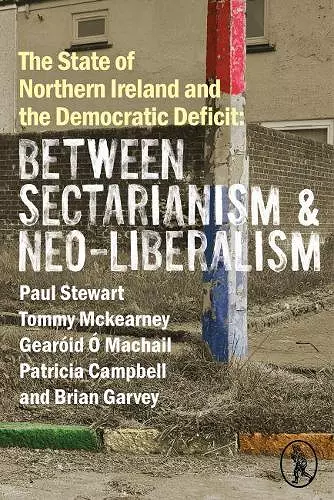The State of Northern Ireland and the Democratic Deficit: Between Sectarianism and Neo-Liberalism
Examining the impact of sectarianism and neoliberalism
Paul Stewart author Patricia Campbell author Tommy McKearney author Gearoid O Machail author Brian Garvey author
Format:Paperback
Publisher:Vagabond Voices
Published:12th Oct '18
Should be back in stock very soon

This book critically examines the challenges facing Northern Ireland post-Good Friday Agreement, highlighting the roles of sectarianism and neo-liberalism.
In The State of Northern Ireland and the Democratic Deficit: Between Sectarianism and Neo-Liberalism, the author explores the complexities of Northern Ireland's political landscape following the Good Friday Agreement. While mainstream media often portrays Northern Ireland as a prosperous, modern society, the book argues that the roots of current challenges can be traced back to the 1998 agreement. The collapse of the Stormont Assembly in 2017 marked a turning point, revealing underlying issues such as corruption, poverty, and a democratic deficit that had been masked by a veneer of success.
The narrative delves into the impact of neo-liberalism on the region's socio-political fabric, suggesting that rather than alleviating sectarian tensions, it has fostered a new form of sectarianism. The text highlights how the political elite, benefiting from the Good Friday Agreement, have failed to address the deep-seated issues stemming from a history of armed conflict. The plight of precarious workers, the erosion of third sector autonomy, and the ongoing struggles of communities still grappling with the consequences of the past are examined in detail.
Ultimately, The State of Northern Ireland and the Democratic Deficit calls for a critical reassessment of the peace process and its implications. It emphasizes that without confronting the intertwined issues of sectarianism and neo-liberalism, Northern Ireland's path to genuine progress remains obstructed, as the societal wounds from the past continue to affect the present and future of its people.
ISBN: 9781908251961
Dimensions: 210mm x 140mm x 16mm
Weight: unknown
224 pages